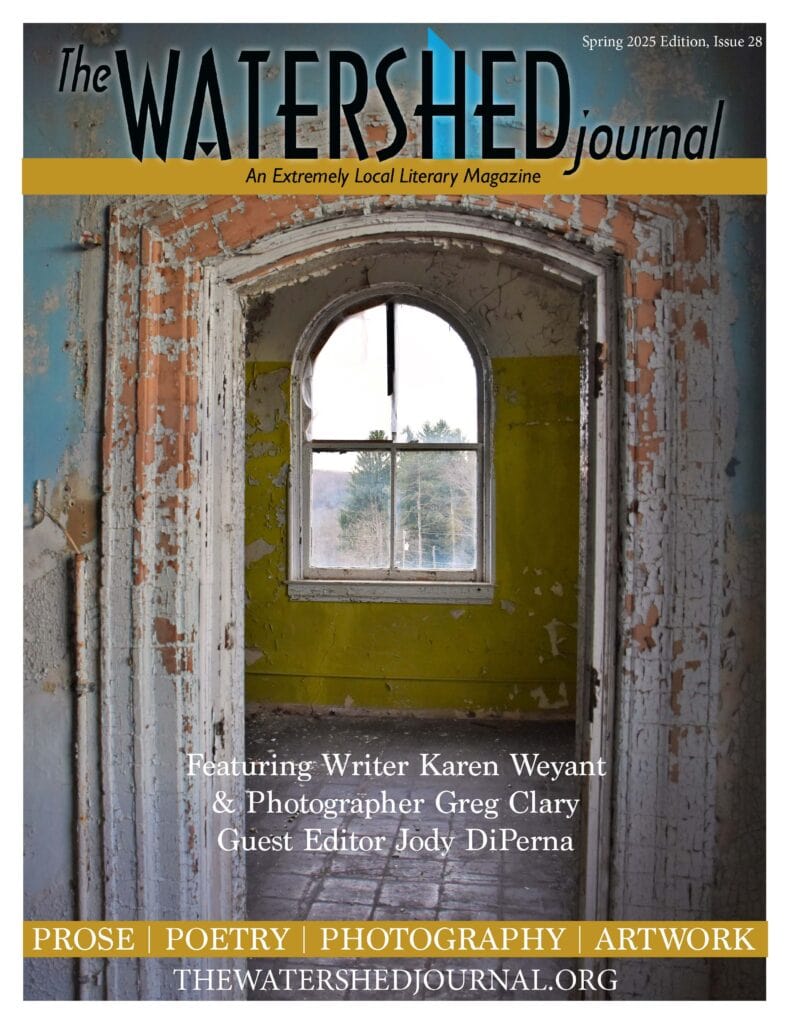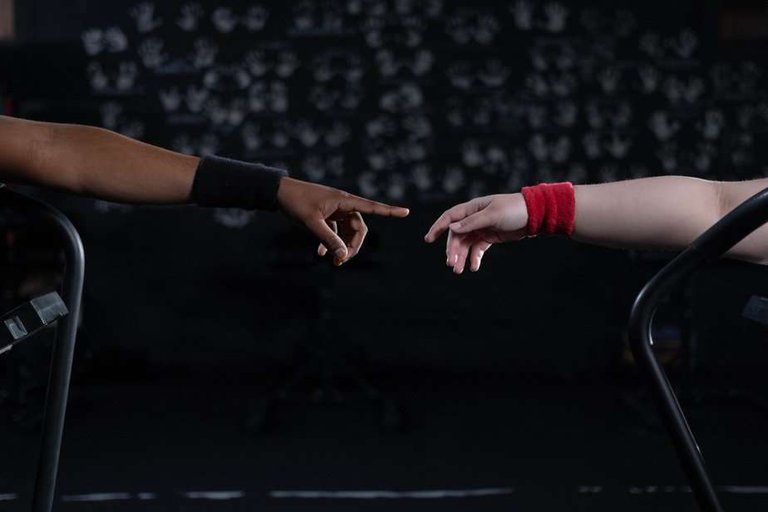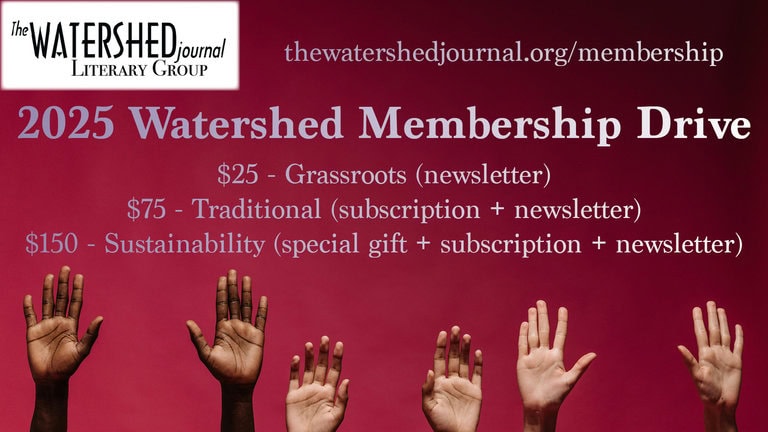Spring 2025 Edition Introduction: Letter from the Guest Editor Jody DiPerna
The stories collected here in the Spring 2025 Issue of The Watershed Journal are filled with the hope that spring brings, along with a deep feeling for the need for connection and growth, both physical and spiritual. These stories and poems are filled with longing and gratitude. Writers search through solitude and through kinship. They find ways to see the world around them–to really see it–what things are lost? What are the small miracles of daily life?
I have a whole collection of grief books, everything from Simone de Beauvoir to Joan Didion to Studs Terkel. It’s an odd niche, but these books have been shepherds in some of the hardest times of my own life. I understand grief as a gift now. It is the price of love. We’ve all experienced it–the loss of a parent or sibling or friend or beloved dog. The only way through it is to go through it.
I’ve thought so much about this that I’ve considered teaching a class for obituary writing. It is the first last thing that you get to say about somebody. For many people, it is the only time their name will appear in print. Honoring our dead is important. “The Assignment” is a meditation on just such an idea. How do we consider a person in all of their complexity, strengths, failings and quirks? What will you remember of your friend, your neighbor, your cousin? Their wild and wacky sense of humor? The way they listened? That they would show up and shovel your sidewalk without being asked?
As I’ve aged, particularly in this time of climate collapse, I find myself grieving for things other than the humans I hold dear. I go for a walk in the woods and listen to the creaking of the trees, the rustle of the undergrowth and I worry. I worry over the ferns and the saplings, over the moss and the bees. I worry for the chipmunks and scarlet tanagers and house finches. I worry for the dirt itself.
The struggle to love in a time of uncertainty flows throughout all of these writings. It is evident in “A Thin Strip of Gravel” as the writer marvels at the renewal of life and the precarity of youth; it is a story that, in just 600 words, is a full-bodied celebration of the small wonders that sustain us.
Likewise, “Sauntering in Solitude” is a rumination on the eternal that one finds in nature. “That Spring” pulls us into a world of ineffable memories with the smell of lilac. “The Mysterious Mr. Chirps” ruminates on the healing power of communing with an unexpected spiritual guide. “Walking With My Wife on Our Lunch Break” is a poem about trying to help a stranger that takes an unexpected turn.
These stories, whether poems, nonfiction or fiction, are about our shared humanity and how much we gain by recognizing that which we share, the ways that our lives are enriched by seeing the sacred in one another and in all of the life around us.
The day before sitting down to write this, I drove home from our son’s wedding through the Pennsylvania Wilds. As I always do in this part of the world, I marveled at beauty that takes my breath away. But still, I worried. What will happen to this landscape I so cherish? Will my fisher friends and hunter friends, will my gardeners and arborists and hikers and swimmers be able to restore themselves and sustain themselves in this abundant tonic of a natural world? What will be here for future generations?
As a writer friend of mine told me recently, we all live in a floodplain now.
As we artists face the existential threat of AI narrowing the possibilities for us, the Watershed Journal is a light along the way. Real humans sharing their stories. Real humans listening, reading and connecting. With spring upon us, the ice is banished for another year and the snow a memory, at least until next November. These writers urge us to go outside and be in the world. They remind us of the gift of our mortality. Go outside. Listen to the birds and the wind in the milkweed. Take in the smell of honeysuckle and the skunk cabbage, too. Take it all in, storing it greedily in your memory, leaving nothing behind except your footprints and the ways you touched other people’s lives.
Jody DiPerna



